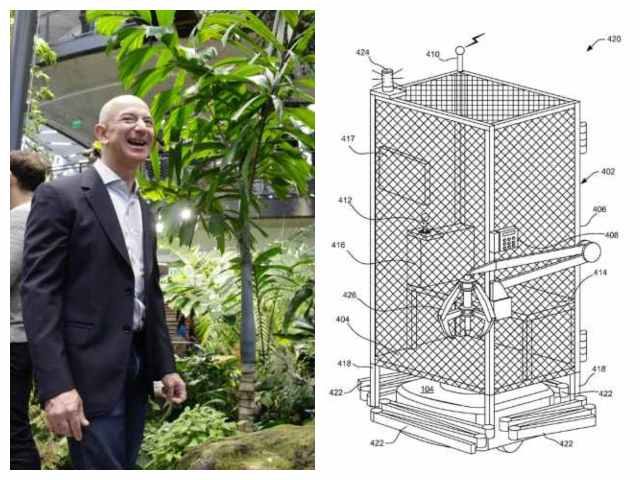Amazon received a patent in 2016 for a system which would place employees in cages to maintain robots.
According to the Boston Herald, “Illustrations that accompany the patent, which was granted by the U.S. Patent and Trademark office in 2016, show a cage-like enclosure around a small work space sitting atop the kind of robotic trolleys that now drive racks of shelves around Amazon warehouses.”
“Amazon says it never implemented the technology and has no plans to, but the design appeared to be an effort to allow humans to safely enter robot-only zones in Amazon’s highly-automated depots to make repairs or pick up dropped objects,” they explained.
Despite owning the patent, Amazon currently has no plans to use such a system, according to a spokesman, who claimed speculation about the patent was “misguided.”
“Like many companies, we file a number of forward-looking patent applications,” the spokesman declared, adding that the patent has not been realized in any Amazon facilities.
New York University’s AI Now Institute co-founder Kate Crawford and professor Vladan Joler described the cage system as a “machinic ballet.”
“It depicts a metal cage intended for the worker, equipped with different cybernetic add-ons, that can be moved through a warehouse by the same motorized system that shifts shelves filled with merchandise,” they proclaimed. “Here, the worker becomes a part of a machinic ballet, held upright in a cage which dictates and constrains their movement.”
Last year, it was reported that Amazon warehouse employees were being worked to exhaustion, with some falling asleep on the job, urinating into bottles and trashcans for fear of being sanctioned for bathroom breaks, and living in the warehouse parking lot, while this year Amazon was also granted a patent for a wristband which would track employees and tell them where to go in the warehouse.
To combat negative press, Amazon paid employees last month to say nice things about the company on Twitter, which other users ended up describing as “creepy.”
Charlie Nash is a reporter for Breitbart Tech. You can follow him on Twitter @MrNashington, or like his page at Facebook.


COMMENTS
Please let us know if you're having issues with commenting.